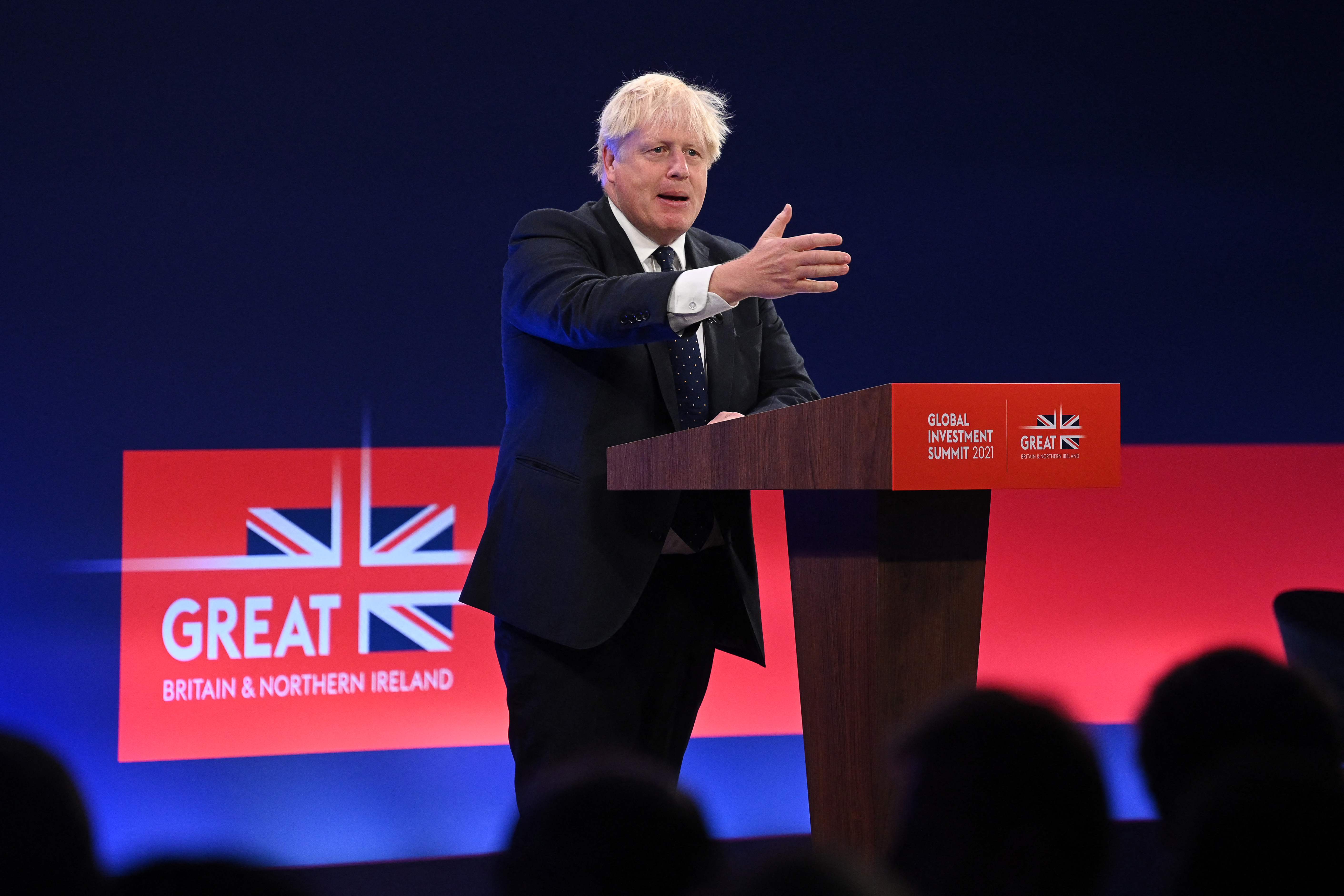Politicians now hold the power in shaping a narrative out of chaos – it’s a shame they don’t use it better
We are supposed to get our entertainment directly from the prime minister these days – and the shallow tales he tells, writes Katy Brand


There was a full moon this week. It was very bright and I felt drawn to the window to stare at it for a little while and think some existential thoughts. I thought how cold it looked, and how close.
And then I looked at the far-away constellations and considered how nothing really matters out there; that my concerns down here in my warm kitchen are meaningless and inconsequential; that from a cosmological point of view, I will be gone in the blink of an eye. Life is short. I poured myself another glass of wine.
In the early days of organised religion, which seemed to coincide with the rise of agriculture, where, having left nomadic hunter-gathering behind and gaining more time to sit and consider the universe, the first real stories about the meaning of everything expanded. If you could comfort people with a good story, if you were a talented storyteller yourself, you may start to gain followers. People would hear you were in the area and come to listen.
Your stories might take on a moral dimension, even educational. They would reassure those who were suffering that their suffering meant something in another future life, where justice would be done and everyone would be rewarded for the hardships they had endured. If you had a little charisma to boot, you might become famous for your stories, or parables.
Later, as organised religion grew to amass riches and power, it became less about wandering troubadours and more about controlling large peasant populations – the church as an instrument of the state has a long history. Telling people that their suffering is not only meaningful but necessary was a masterstroke of the Christian church; it kept everybody nicely in their place, doing the grunt work while behind closed doors an aristocratic and priestly class got fat off the back of it. The rich man in his castle / The poor man at his gate / God made them, high or lowly / And ordered their estate.
The idea that you ought to be suffering to gain access to paradise took on political expediency. If you could wind all this together into a story, and tell it well, your power could be unlimited. Especially if you stopped everyone from actually reading the Bible. Or reading at all.
The need for order to be imposed via story to defend ourselves against the foreknowledge of death is as old as humanity. Life is random, unfair and difficult a lot of the time. It’s much easier to take if it seems to mean something, to be part of a bigger picture where, with enough virtue, everything will make sense in the end. The puritanical streak of the protestant reformation ran with this idea, and we still feel it today even as the number of religious believers declines every year. Life should be hard sometimes, some people think, or how will you know if you are good enough to bear it? To deserve the good times?
This situation leads us to a place where politics is replacing religion as the primary source for stories that make sense of chaos, even as it is the political class that creates the suffering. And while as an atheist I have no particular sadness about the demise of organised religion in the UK, it alarms me that anyone with a good story to tell about our current condition can now access power.
No wonder this government doesn’t mind destroying the arts – that other primary site of wonder and narrative order – when we are supposed to get our entertainment directly from the prime minister these days. It’s unsurprising that the government doesn’t care about imposing cruelties on our weakest when it has figured out a way to tell a story that makes it sound necessary, even virtuous.
But politics shouldn’t be about promising deferred happiness based on how well we handle the suffering now. Politics should see suffering and act immediately to stop it. I don’t want stories about paradise tomorrow, and neither do the thousands of children who will go hungry and cold this winter because of the government.
There is a different story you could tell. Life’s too short; it should be glorious now. Fix it today.



Join our commenting forum
Join thought-provoking conversations, follow other Independent readers and see their replies
Comments